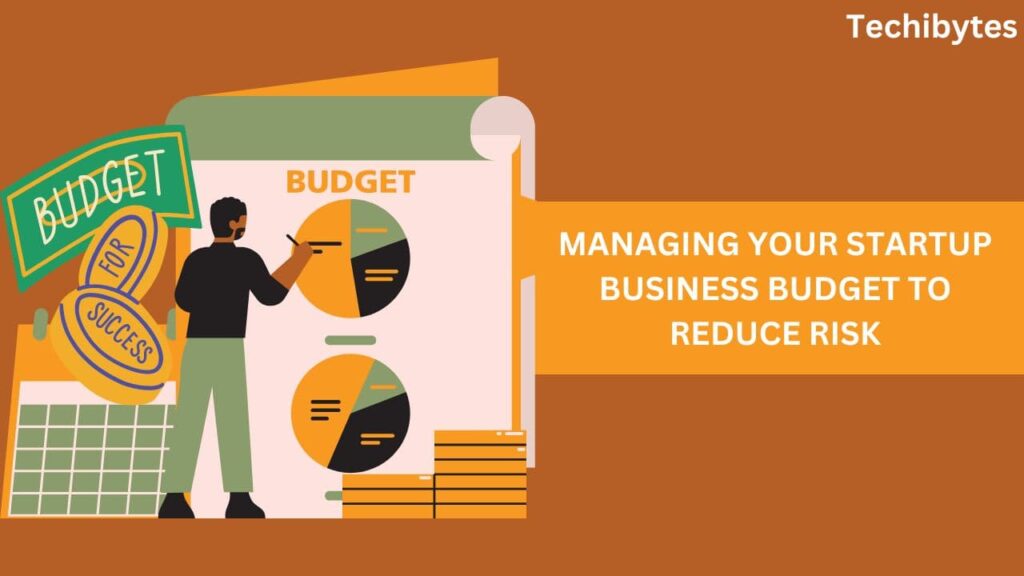Are you in the process of getting a new startup business off the ground? If so, one of your first and most important steps is creating a budget that minimizes risk as far as possible.
While financial risk can never be fully eliminated, there are plenty of steps you can take to reduce it and give your new business the best chance of surviving and thriving.
Stats show that just under half of all new small businesses fail because they run out of cash. While this is a startling figure, being mindful of the dangers of overspending and not properly budgeting is one of the best ways for your own startup to avoid this fate.
Table of Contents
Managing Cash Flow
A key consideration when creating a budget for your startup is cash flow management. You’ll need to meticulously plan how and what you’re going to spend on and draw up a detailed financial forecast to help identify potential pitfalls and shortfalls. And then, come up with a plan regarding how you’ll manage these setbacks and keep your startup on the right track.
You can track your expenses on a spreadsheet, to begin with, or a spend control platform could be a great tool to help you get on top of your outgoings and see where savings can be made to ensure you never run out of cash: as mentioned, one of the biggest risks faced by a startup.
Make the Most of Free – but Scaleable – Apps and Tools
When you’re just starting out, it’s a good idea to look for apps and tools that have all the features your business currently needs, as well as the capacity to grow with you over time. For example, choose an email app that has multiple tiers.
The free tier is likely to provide all the basic functionalities that your business needs, and as soon as you need access to more advanced features, extra inboxes, or additional integrations, you can simply upgrade to a higher tier without the hassle of having to switch providers.
Free tiers, whether for marketing software or time-tracking tools, also offer the perfect way to try out an app or platform without committing any of your startup’s precious funds.

Consider Renting Office Space
As a startup, keeping costs down is vital. One of the ways to do this is to rent office space on an as-and-when-needed basis rather than forking out on buying or leasing business premises.
Typically, these sorts of co-working office spaces come equipped with the tools you’re likely to need, such as landline phones, printers, and scanners, and they mean that you only pay for the time you require a desk. Many startups are now renting space on an ad-hoc basis, with staff working from home for the rest of the time.
Compliance Issues
When creating your startup’s budget, you’ll also need to factor in issues around compliance. This could be anything from tax expenses you’re likely to incur, to the outlay, for example, required to ensure your premises are accessible.
Non-compliance can carry a heavy financial penalty, making this aspect of your business’s operations even more important. You may want to consider bringing on board payroll, HR, and accountancy software, which both reduces your workload through automation and helps to ensure financial compliance – thereby reducing the risk of a nasty fine.
Be Aware of Budgeting Risks
And last but not least, it’s vital to remain mindful of budgeting risks – this is where there is the potential for your carefully devised startup budget to deviate from the plan! Budgeting risks usually take the form of operational risks and marketing risks.
The former refers to potential overspending in connection with the day-to-day running of the company, while the latter relates to market variables, which could ultimately impact costs.
Being aware of these risks can help you to spot potential overspending early and make adjustments. They’re also a key reason why having some backup ‘rainy day’ funds is so important.
Careful Budgetary Planning to Minimize Financial Risk
Creating a budget is only the first part of the task, however. For the best chance of keeping your startup in the black and seeing it thrive, you’ll need to build a system of financial oversight and spending control into your daily processes.
Starting a new business comes with inherent financial risks, but creating a budget, and taking steps to cut down on unnecessary spending from the off, are the best ways to steer clear of trouble and avoid running out of cash. This way, you’ll be positioned to take your startup to the next level when the time is right.
If you liked this article, then please subscribe to our YouTube Channel for videos. You can also find us on Twitter and Facebook.